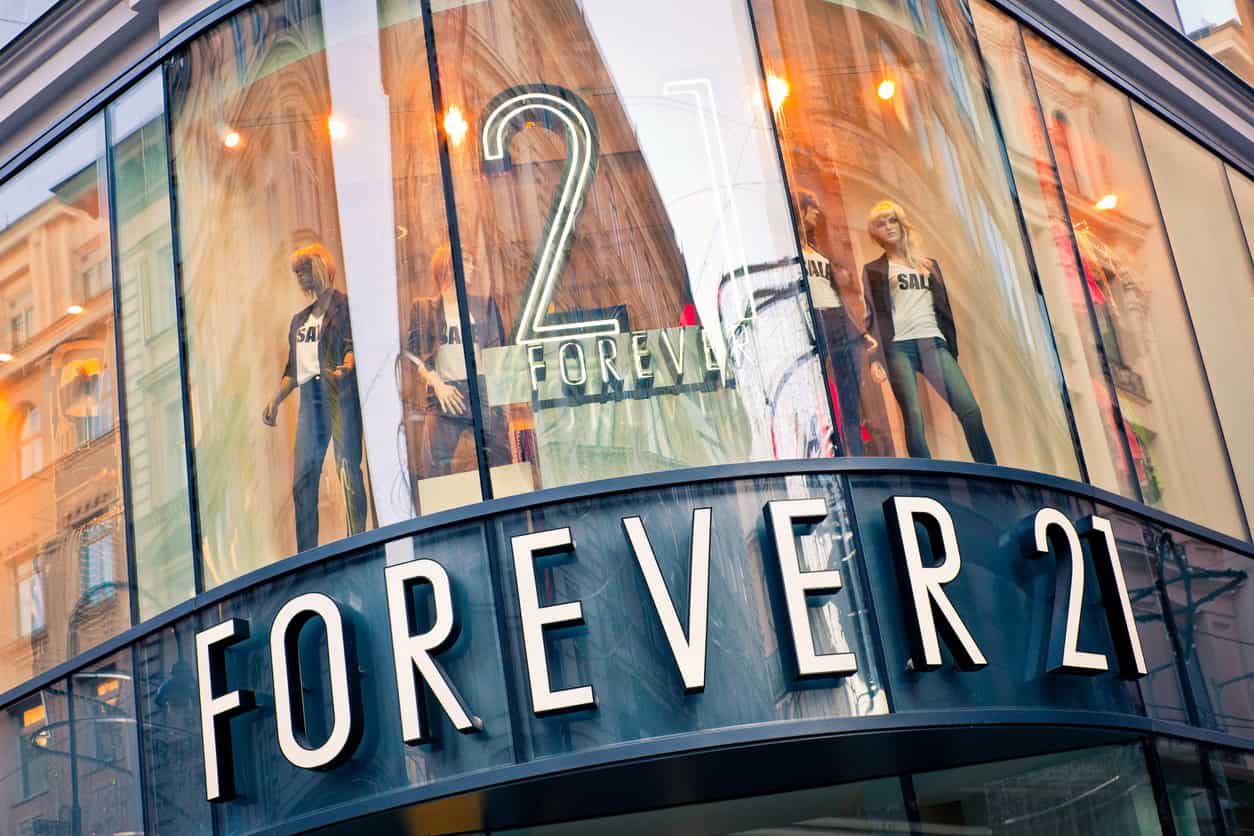
iStock.com/zodebala
Forever 21 Seeks Rent Concessions Amid Financial Struggles
June 21, 2024
Forever 21, a legacy fast-fashion retailer, is grappling with significant financial challenges and is now seeking rent concessions from some of its landlords to alleviate its financial strain. The company, which filed for bankruptcy protection in 2019, is asking for rent reductions of up to 50% as it faces a decline in sales and increasing competition from more agile digital upstarts.
SPARC Group, which runs Forever 21’s operations, has been analyzing its budgets and dealing with the complexities of integrating multiple legacy brands while centralizing its operations. Running brands that primarily operate in malls has posed additional challenges, especially with expensive leases for underperforming stores weighing down financial performance. This has resulted in Forever 21 consistently paying its vendors late, with some bills going over 70 days past due late last year, according to data from Creditsafe, a business intelligence platform.
Forever 21’s financial woes are compounded by its inability to keep up with inventory management and respond effectively to consumer preferences. The company’s earlier aggressive expansion left it unable to invest adequately in its supply chain and adapt to shifting fashion trends, which has further strained its resources. This situation has also impacted its operator, SPARC Group, a joint venture that includes Authentic Brands Group, Simon Property Group, and Brookfield Property Partners. SPARC, which manages Forever 21 and other formerly bankrupt retailers like Aeropostale, Brooks Brothers, and Lucky Brand, is also facing financial difficulties.
In the highly competitive fast-fashion industry, Forever 21’s main rivals are no longer just H&M and Zara but also ultra-fast-fashion retailers like SHEIN and Temu. These companies have revolutionized the market with their rapid production cycles and ability to respond almost instantly to new trends, often outpacing traditional retailers. This has forced Forever 21 to seek innovative solutions to stay relevant.
The retailer operates more than 380 stores across the U.S. and has been hit hard by the rapid evolution of the fast-fashion market. Despite having restructured its operations and closed hundreds of stores post-bankruptcy, Forever 21 continues to struggle with managing its vast store footprint and adapting to the fast-paced market demands. The company has yet to hire advisors and is not currently considering a second bankruptcy filing, focusing instead on restructuring its leases to cut costs.
Recent News
South Philadelphia Pizza One of the Best in the United States
The eatery was one of only 22 which made the list.
CVC Capital Partners to Acquire UK Infrastructure Contractor M Group
In a strategic move to bolster its portfolio, CVC Capital Partners Plc has announced its agreement to acquire UK-based infrastructure contractor M Group Services. This acquisition, expected to finalize in the third quarter of this year, represents another significant investment for the private equity firm. While the official statement did not reveal financial specifics, sources indicate that the deal values M Group at just over £1 billion ($1.3 billion).
Samsara Unveils Asset Tag at Beyond Conference
Samsara, a leader in transportation and manufacturing solutions, introduced its latest innovation, the Asset Tag, at its annual user conference, Beyond. This new product aims to significantly enhance real-time visibility and management of industry equipment and tooling, addressing critical issues like loss, theft, and operational disruptions. Currently, the Asset Tag is available to customers across North America and Europe, offering a powerful tool for businesses seeking to enhance their asset management capabilities and improve operational efficiency.
Walgreens to Close Underperforming Stores
In response to persistent profitability challenges and eroding margins, Walgreens announced on Thursday its decision to close a substantial number of underperforming stores across the United States. This strategic move is part of a broader multi-year footprint optimization program aimed at enhancing the company’s overall efficiency and financial health.
